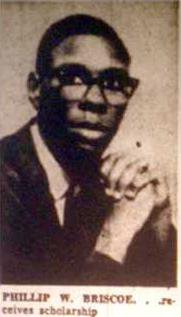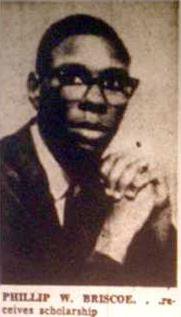Each week we’ll take a step back into the history of Great Bend through the eyes of reporters past. We’ll reacquaint you with what went into creating the Great Bend of today, and do our best to update you on what “the rest of the story” turned out to be.
World news
Congrats turned to sorrow for President John F. Kennedy fifty years ago this week in 1963. On August 5, the UPI story “Jackie flooded by baby letters,” gave a happy portrait of the First Lady waiting for the birth of her third child. “It’s a boy!” was the headline on Aug. 7, detailing how the President rushed to Otis Air Force Base to be with his wife and newborn son. By Aug. 9, the country was in mourning as “Kennedy Infant Succumbs Today,” and “Stillness Hangs Over Otis AF Base Hospital.” According to the stories, the little guy had severe breathing problems that could not be overcome.
This was also the week of the Cheddington Mail Van Raid. Highly organized bandits sabotaged the railroad’s red lights to stop a train 40 miles north of London, uncoupled the engine and moved it a mile down the tracks, and made off with over a hundred postal bags, some filled with millions of British Pounds. “So swiftly and smoothly did the gang work that about 75 post office employees, all but four in the rear cars, were unaware of the robbery until it was over,” the wire story read. In the aftermath, two books were written about the robbery, as well as a slew of biographies of those who investigated and those who took part in the crime. It eventually came to be referred to as “The Great Train Robbery,” not to be confused with the 1903 film which is considered the first narrative motion picture in the history of film.
Boat maker locates in Great Bend
Great Bend became the home of short-lived WesCraft Industries, Inc., a boat making company that had it’s start in rural Bazine, KS. The Tribune story said, “Charles Girton, a member of the new corporation, and Emil Lewis, director of the City Industrial Commission, appeared at the special meeting to ask the council to issue industrial revenue bonds for erection of a building on land owned by the city at the DuBois sandpit.” The city was in favor of bringing a new industry to town, and who could blame them--the little company had a contract with the U.S. National Guard. According to the Kansas State Historical Society, here’s the rest of the story:
“The WesCraft Boat Manufacturing Company was formed by Wesley “Wes” Hagelgantz a dairy farmer who lived near Bazine, Kansas. One summer he rented a Thompson cedar strip boat with a small outboard motor. He took it to Cedar Bluff Reservoir and had a wonderful time. He started building and selling boats made from kits. He converted his barn into a boat shop and hired Howard Watts, who had experience working with fiberglass. Watts’ wife was an experienced upholsterer. The first WesCraft fiberglass boat was built in 1957.” By 1960 the Coast Guard was using the 17-foot model for their high-speed boating demonstration team. “The small rural based boat company grew and by 1963, it was decided the company needed a larger facility closer to a steady labor source. In early August it was announced they would move to Great Bend, Kansas. On September, 1963, they incorporated as WesCraft Industries, Inc. With a city funded industrial revenue bond, the company purchased property and built a facility at 623 Madison Street. On January 1, 1974, Wes Hagelgantz and other stockholders sold the firm to Jim McQuinn, George Bemis, and Gary Hawk. The company name was changed to WesCraft, Inc. The new owners dropped the small dealerships and boat sales slumped. During the first weekend of November 1976 the company had a factory close out sale and it ceased operations. The US Coast Guard Manufacturer’s Identification Code database indicated WesCraft was not longer operating by May 17, 1978.”
Scholarship and Civil Rights
The Civil Rights movement was heating up in the country, and all week, stories in The Tribune highlighted this fact. “Struggle Only Beginning,” “Rural South will be Target for Integration,” “Candidates Told Negroe Support May Be Harmful,” and “Congress Looks for Orderly March, But Prepared to Squelch Violence” were some of the headlines. The march referred to was the now famous March on Washington where Martin Luther King made his famous “I have a dream” speech on Aug. 28, 1963. The UPI story warned, “(Congressional) leaders are expected to take no chances should the demonstration get out of hand and thousand of Negroes suddenly decide to move on Capitol Hill.”
This was the political climate in the country when Great Bend High School senior Phillip Wesley Briscoe, a black student, was featured in the paper as the recipient of a Henry L. Doherty Educational Foundation scholarship. The awards were given to the children of employees of Cities Service companies. Cities Service was a chain of filling stations. Likely, one of Briscoe’s parents, Mr. and Mrs. Alfonso Briscoe, worked for Cities Service. In 1963, there were two listed in the Great Bend Directory. One, managed by Max A. Bolick, was at 1615 Main, and the other, managed by John D. Forsyth, was located at 3716 10th.
Phil Briscoe, listed in the 1963 GBHS yearbook, was involved in several musical groups and clubs like band, band council, brass choir, trumpet trio, trumpet quartet, dance band, pep band, and symphonic ensemble. He also lettered in track. According to the 1963 Tribune article, he planned to attend Kansas State College and major in guidance counseling. Thanks to the Barton County Historical Society Museum, we learned from the 1997 GBHS Alumni directory that Briscoe had become a Senior Account Agent with Allstate Insurance, living in Seattle, Washington.
College, then as now, was a major expense for families. An editorial in The Tribune addressed this.
“A recent study by the University of Michigan reveals that the average annual bill for an American college student is $1,550. In a few years we may look back and wonder if things were ever that inexpensive. But right now, this sum of money looms as an insurmountable obstacle for far too many otherwise qualified high school graduates who are now going through a “summer of discontent” before reconciling themselves to the fact that college, through no fault of their own, is not for them.”
The editorial goes on to talk about the newly emerging “financial aid” as well as other traditional forms of funding, i.e. part time jobs, private loans and scholarships, to pay for college.
“All are resolved that in America no qualified young person be denied access to the best education he is capable of mastering.”
Well, you have to have been living under a rock not to be aware that college costs have indeed skyrocketed. Today, the average American college student will pay $22,261 for a year at a public college, and $43,289 at a private college, according to CollegeData.com That includes tuition, fees, books, living and travel expenses. One bright spot, according to the National Urban League’s “State of Black America” report for 2013, there are 3.5 times as many black students enrolled in college as was true 50 years ago and five times as many black adults with a college degree. Keep in mind, it’s still not as promising as it could be.
Out of the Morgue
Sadness at the White House, robbery in England, boat making on the prairie and local boy makes good





